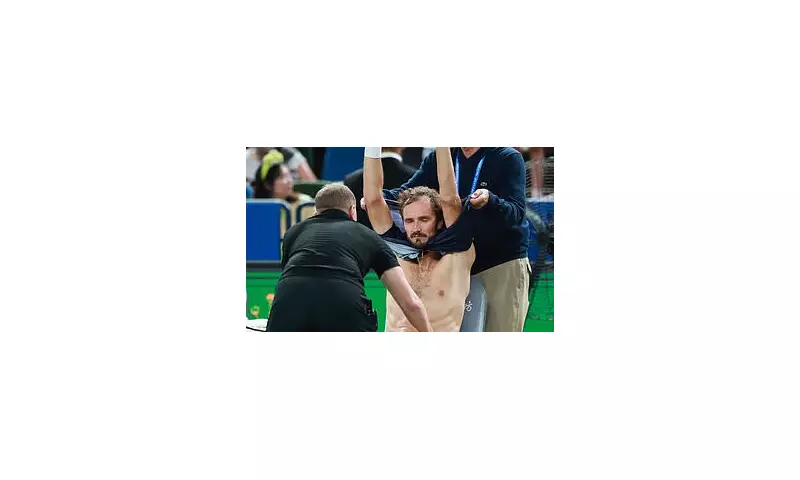
In one of the most surreal moments witnessed at Flushing Meadows, Russian tennis star Daniil Medvedev found himself at the centre of an extraordinary incident during his gruelling US Open match against rival Alexander Bublik.
The world number three, battling oppressive heat and humidity that pushed players to their absolute limits, made an unprecedented request that left spectators and officials stunned. During a changeover, the visibly distressed Medvedev summoned a ball girl and demanded she help him remove his sweat-soaked shirt.
"Do You Want Me to Die?": Player's Desperate Plea
The bizarre scene unfolded as Medvedev struggled with the extreme conditions that have become increasingly common in professional tennis. "The only thing I'm thinking about right now is that I want to finish the match," Medvedev confessed during the contest. "I can't stand anymore. I want to go to the shower."
In a moment of pure frustration and physical exhaustion, the former champion turned to the chair umpire with a chilling question that highlighted the severity of the situation: "One player is gonna die, and you're gonna see."
Extreme Conditions Push Players Beyond Limits
The match took place during one of the most brutal heatwaves to hit New York during the tournament, with on-court temperatures soaring to dangerous levels. Medvedev's dramatic shirt change became a symbol of the extreme challenges facing modern athletes in an era of changing climate patterns.
Despite the physical ordeal, Medvedev demonstrated remarkable resilience, battling through the discomfort to secure victory in four sets. However, the incident has sparked serious conversations about player welfare and tournament scheduling during extreme weather events.
Safety Concerns Take Centre Court
This isn't the first time heat conditions have dominated discussion at major tournaments. The professional tennis circuit frequently encounters challenging environments, from the Australian Open's extreme heat policy to the humidity battles at the US Open.
Medvedev's raw emotional response and unusual request for assistance highlight the very real physical toll these conditions take on competitors. The incident serves as a stark reminder of the human element in professional sports and the ongoing need for comprehensive heat management protocols.
As tournaments continue to grapple with increasingly extreme weather, moments like Medvedev's desperate shirt change may become less of an anomaly and more of a warning sign for the future of outdoor sports.




